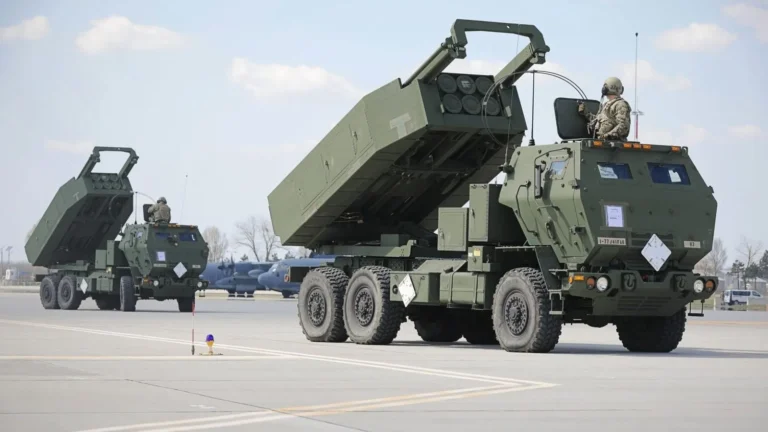Follow Us:

Share
A recent incident in the Baltic Sea has added fuel to the ongoing tension between NATO members and Russia. A Russian warship fired warning shots at a German military helicopter engaged in a reconnaissance mission over the region. This act of aggression, confirmed by Germany’s Foreign Minister Annalena Baerbock, has further strained relations between Berlin and Moscow, creating more uncertainty in the already volatile Baltic Sea.
Russian ship 'opens fire' at #German helicopter; 'spooked' Berlin confirms Baltic Sea 'shocker'
— The Times Of India (@timesofindia) December 5, 2024
Watch pic.twitter.com/Jphsw6cOPu
The incident occurred as the German helicopter, part of the Luftwaffe’s reconnaissance fleet, approached a Russian naval vessel during its surveillance operation. The helicopter was performing routine reconnaissance in a region that has seen a marked increase in military activity in recent months. While the exact details surrounding the confrontation are still under investigation, it is reported that the Russian warship fired signal munitions—typically used for warning—at the German aircraft. Fortunately, the helicopter was unharmed and returned to base without further incident.
The Baltic Sea has become a focal point of military tension, especially as both NATO and Russian forces engage in frequent drills and patrols in the region. This particular incident is part of a broader pattern of confrontations in this strategically important area, where both sides have increasingly sought to assert dominance. NATO, in particular, has ramped up its surveillance efforts, monitoring Russia’s naval movements in the wake of heightened regional instability due to the ongoing war in Ukraine.

For Russia, the Baltic Sea holds immense strategic value, serving as a critical waterway for its military and commercial activities. Similarly, for NATO and the European Union, it is vital to ensure the region remains secure and that military operations do not escalate into larger conflicts.
As both sides continue to conduct overlapping drills, incidents like this one could easily lead to misunderstandings and unintentional confrontations, which is why maintaining clear communication and de-escalation protocols is of paramount importance.
While the German helicopter returned unharmed, the firing of warning shots by the Russian vessel raises serious concerns about the potential for further escalation in the region.
The use of signal munitions, while non-lethal, could have easily sparked a more dangerous situation. Military experts have noted that such actions by Moscow are seen as deliberate efforts to project power and challenge NATO’s presence in the Baltic.
The risk of accidental conflict is high when military assets from opposing forces operate in such close proximity. Even small actions, like firing warning shots, can lead to a cascade of events that spiral out of control.
This particular incident highlights the fragility of the situation in the Baltic Sea, where a single misstep could ignite a broader confrontation. The presence of both NATO and Russian military forces in the region calls for heightened awareness and an increased focus on preventing these kinds of provocations from escalating into full-scale conflict.
Following the incident, NATO has yet to issue a formal response, but the alliance has stressed the importance of maintaining communication and collaboration to prevent further incidents.
Minister Baerbock, while attending a NATO meeting in Brussels, addressed the situation briefly, calling the Russian action “an unacceptable act of aggression.” She assured that Germany, along with its NATO allies, was working to ensure maritime safety and reduce tensions in the region.
The German government is closely coordinating with its allies to investigate the incident, emphasizing the need for vigilance in the face of escalating tensions in the Baltic. As NATO continues to monitor the situation, it remains clear that open dialogue and transparency between all parties are crucial to avoiding misunderstandings that could lead to unintended military confrontations.
The incident in the Baltic Sea serves as a stark reminder of the risks posed by military posturing in such a sensitive region. While the direct impact of this particular event was limited, it raises broader concerns about the future of NATO-Russia relations and the stability of Europe as a whole.
In the coming months, the Baltic Sea will undoubtedly remain a hotspot for military activity, and both NATO and Russia must find ways to reduce tensions and ensure that incidents like these do not spiral into larger conflicts. The need for diplomacy and careful navigation of these sensitive waters has never been more pressing.
Share
Defense Feeds is publication focusing on informing, engaging, and empowering the world by providing accurate information from defense technology.
Powered by Defense Feeds © 2025 – All rights reserved.